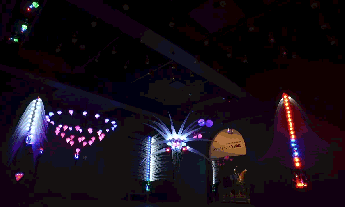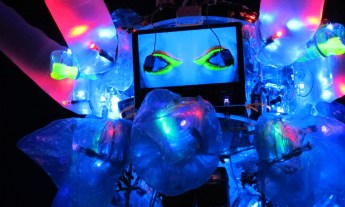
Like most employers, Chieh Huang isn’t interested in hiring people who are overly rigid or who know it all. So he’s created a handful of questions to help identify them.
When new employees don’t work out, the reason is rarely incompetence. That’s according to Chieh Huang, the cofounder and CEO of Boxed. Instead, he says, it’s usually their personality — in particular, an inability to work well with others.
At most workplaces, hiring managers are focused on evaluating candidates for their abilities and experience, so people who can’t do the job seldom make it through the process. But Huang believes there’s something else that they should be screening for: Being a jerk. (Although instead of “jerk”, Huang uses a two-syllable word that starts with “a” and ends with a word that rhymes with “dole.”)
When he meets would-be hires, Huang — as CEO — is the final interview, or, as he puts it, “the last line of defense.” He says, “Everyone else has vetted them for expertise, and they’ve filtered them for being a cultural fit.” Over the years, Huang has devised a three-question “A—e Test.” He speaks with prospective employees for 15 to 30 minutes, which he says is all the time needed to determine if they’re a jerk.
The first question of his Test: “Tell me about yourself, but you can’t mention anything that’s on your resume.” According to Huang, this can be surprisingly difficult for candidates. “Some folks still go back to their resume — ‘I once studied this in college’ or ‘I worked here.’ And sometimes, you get the opposite reaction — ‘Oh, I had a really bad relationship with my sibling,’ and I’m like, ‘Whoa, I’m not a shrink.’”
Many people end up talking about food or travel, which leads Huang to ask questions like “What’s the best or worst trip you’ve ever taken?” or “What’s the best or worst food you’ve ever eaten?” He explains, “If they’re hired, we’ll spend more waking hours with each other than with our families, so I’m checking, Can they carry on a regular conversation?”
But ultimately, what he’s looking for is an attitude of curiosity and openness. It’s a must-have at Boxed, which has an all-hands-on-deck ethos — people who are unwilling to think beyond their job will end up struggling there. “In a company like ours, you’re not just a cog in a machine,” Huang says, “you need to do a little bit of everything.”
The second question of his Test: a “thought-provoking” query to test how candidates think on the spot. While Huang varies the question, he likes to choose one with no right answer, such as “Which country will be the first to make it illegal for humans to drive cars? And what year do you think it will happen?” He wants candidates to really consider the issue before responding and not blurt out the first thing that comes to mind. Huang says, “The only wrong answer is when people freeze up and say, ‘I don’t know.’”
In his experience, he adds, “The best answers have been from folks who think about it and say something like, ‘If that’s going to be the case, then every car sold there would have to be autonomous. Otherwise, how could you make it illegal?’ They go one level deeper. ”
The third (and final) question of his Test: “Rate your knowledge of technology trends on a scale of 1 to 10.” Anyone who answers 9 or 10 gets “an instant red flag” from Huang: “It’s OK if you’re an expert in certain things, but to be an expert in technology? The reality is, the whole industry is shifting and no one knows what’s going to happen in the next 10 years — no one. Folks who feel like they know everything are generally condescending to the people around them.”
While technology trends are relevant to Boxed, which is an internet retailer, the word “technology” in the question could be replaced with your industry or field. Since the world is constantly changing, anyone who calls themselves a 9 or 10 is most likely overhyping their know-how.
One nice side effect of the Test: It helps Huang recall who’s who on staff. As he says: “A lot of the answers are pretty memorable, so I remember, This was your favorite food or This was your best trip.” And it also gives employees something to bond over, he says: “Every once in a while, I’ve overheard conversations in the kitchen and people are comparing their answers.”
Watch his TED@BCG talk here:












